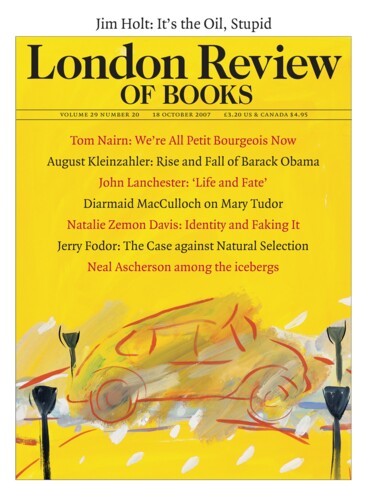It’s the Oil: Iraq’s Lucrative Mess
Jim Holt, 18 October 2007
Iraq is ‘unwinnable’, a ‘quagmire’, a ‘fiasco’: so goes the received opinion. But there is good reason to think that, from the Bush-Cheney perspective, it is none of these things. Indeed, the US may be ‘stuck’ precisely where Bush et al want it to be, which is why there is no ‘exit strategy’. Iraq has 115 billion barrels of known oil reserves. That is more than five times the total in the United States. And, because of its long isolation, it is the least explored of the world’s oil-rich nations. A mere two thousand wells have been drilled across the entire country; in Texas alone there are a million. It has been estimated, by the Council on Foreign Relations, that Iraq may have a further 220 billion barrels of undiscovered oil; another study puts the figure at 300 billion. If these estimates are anywhere close to the mark, US forces are now sitting on one quarter of the world’s oil resources. The value of Iraqi oil, largely light crude with low production costs, would be of the order of $30 trillion at today’s prices. For purposes of comparison, the projected total cost of the US invasion/occupation is around $1 trillion.



